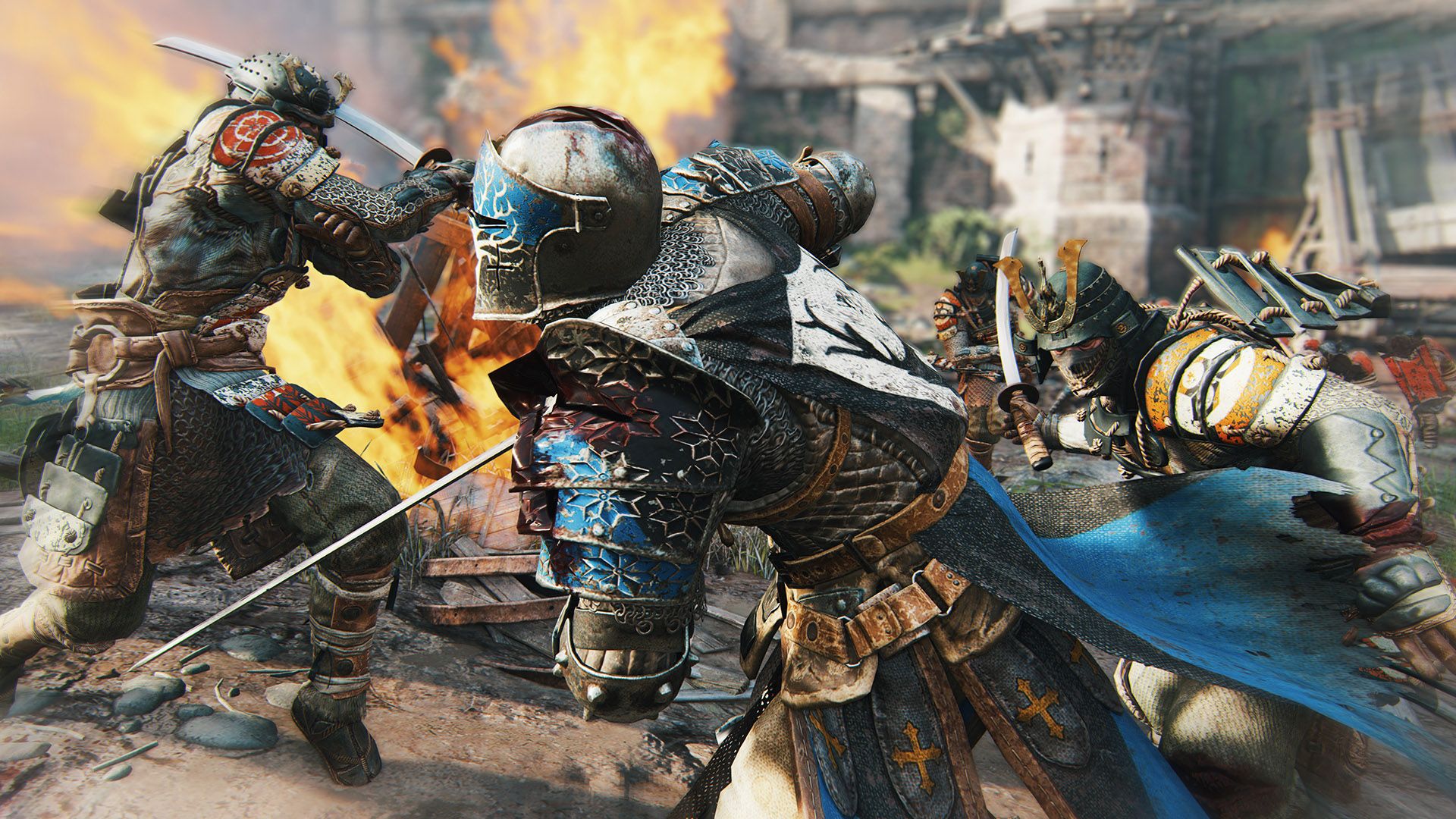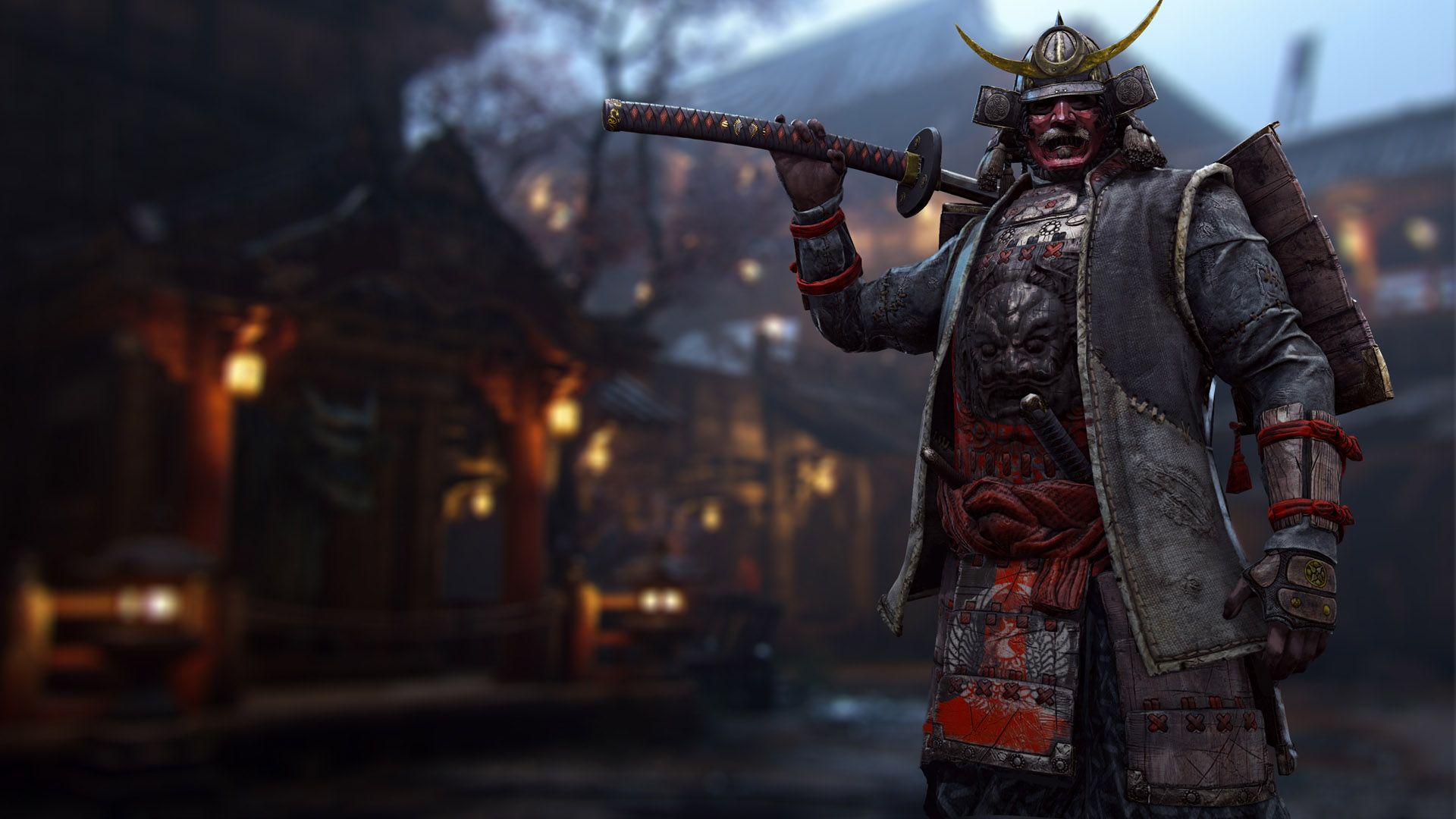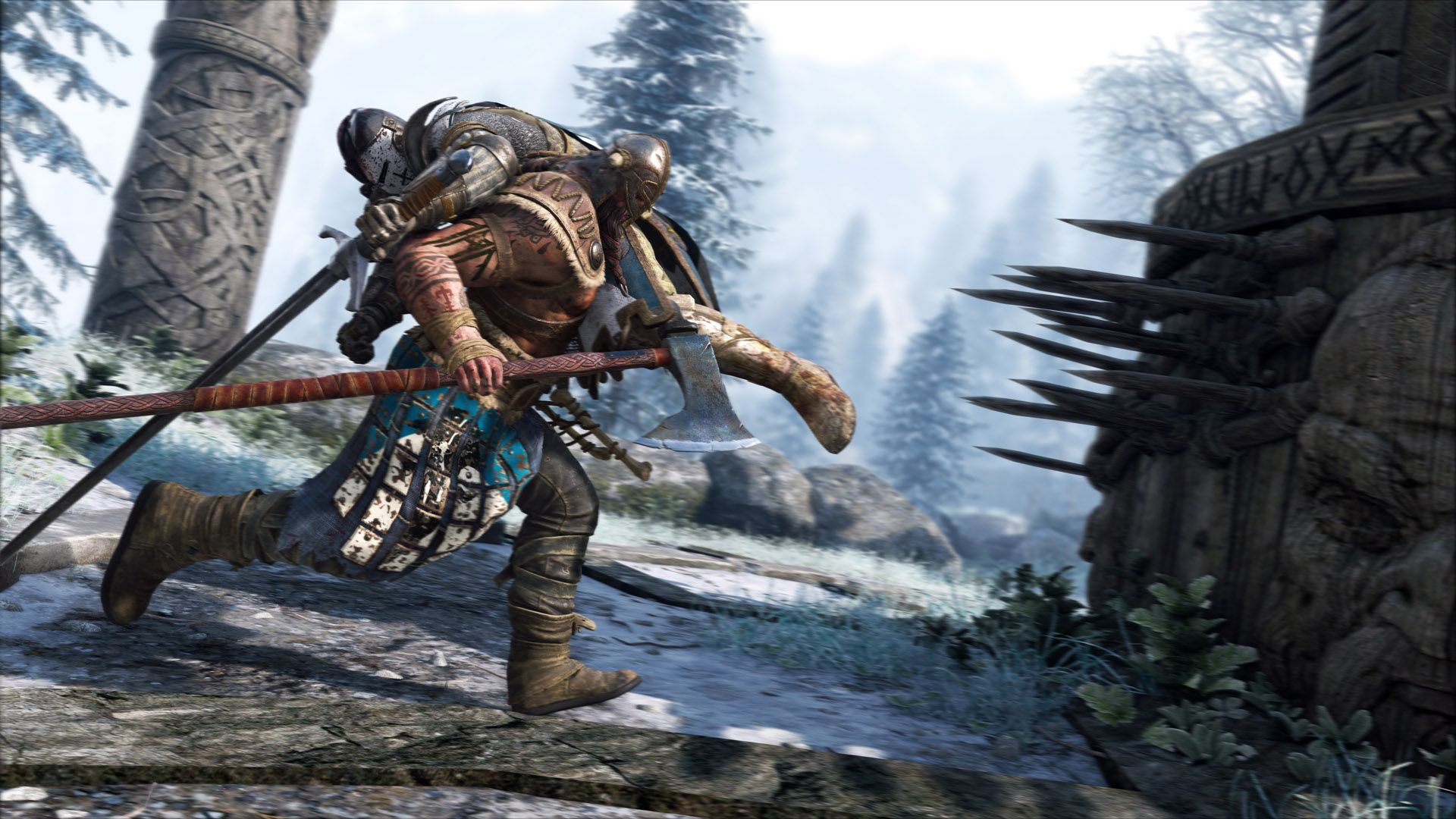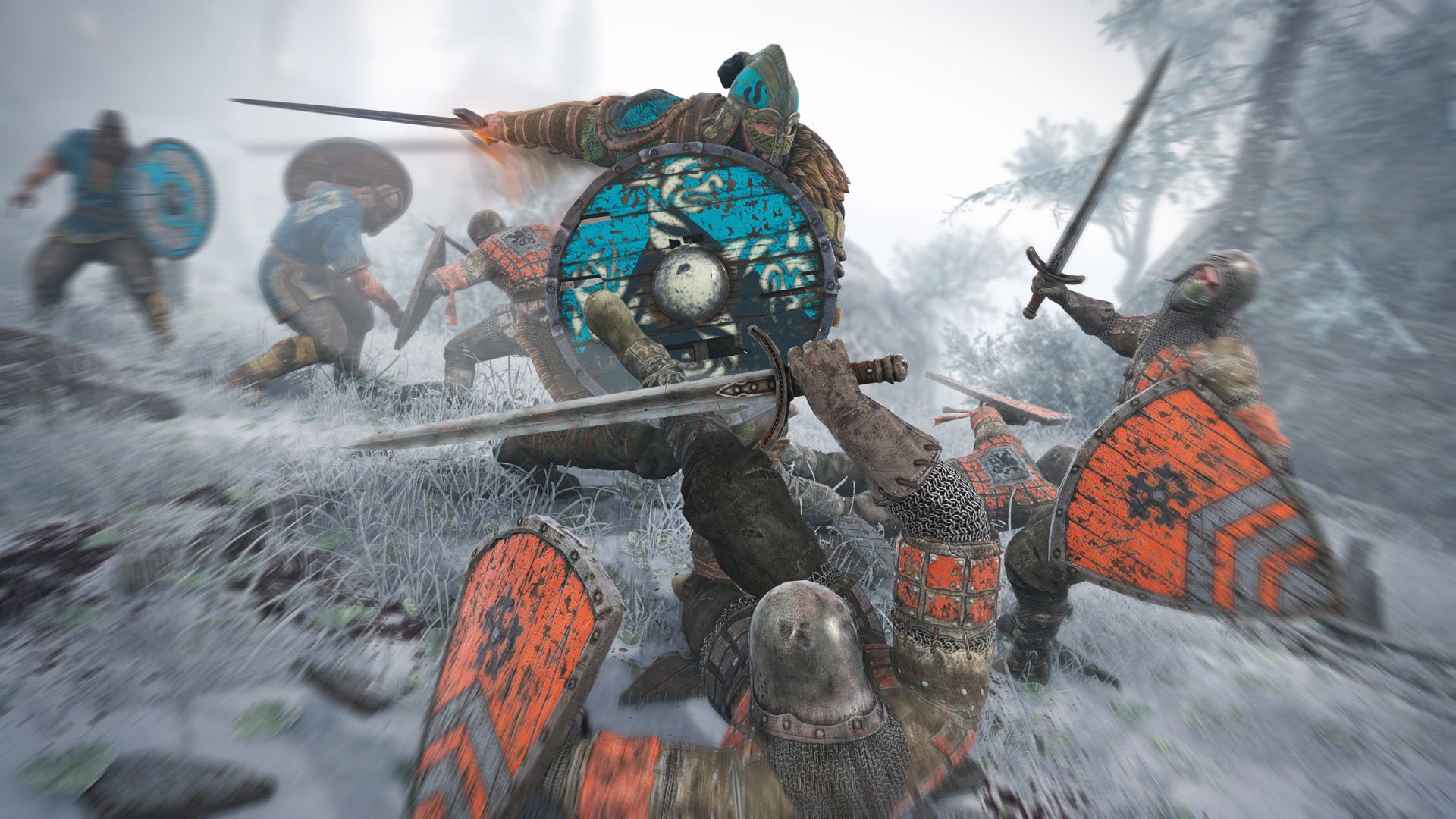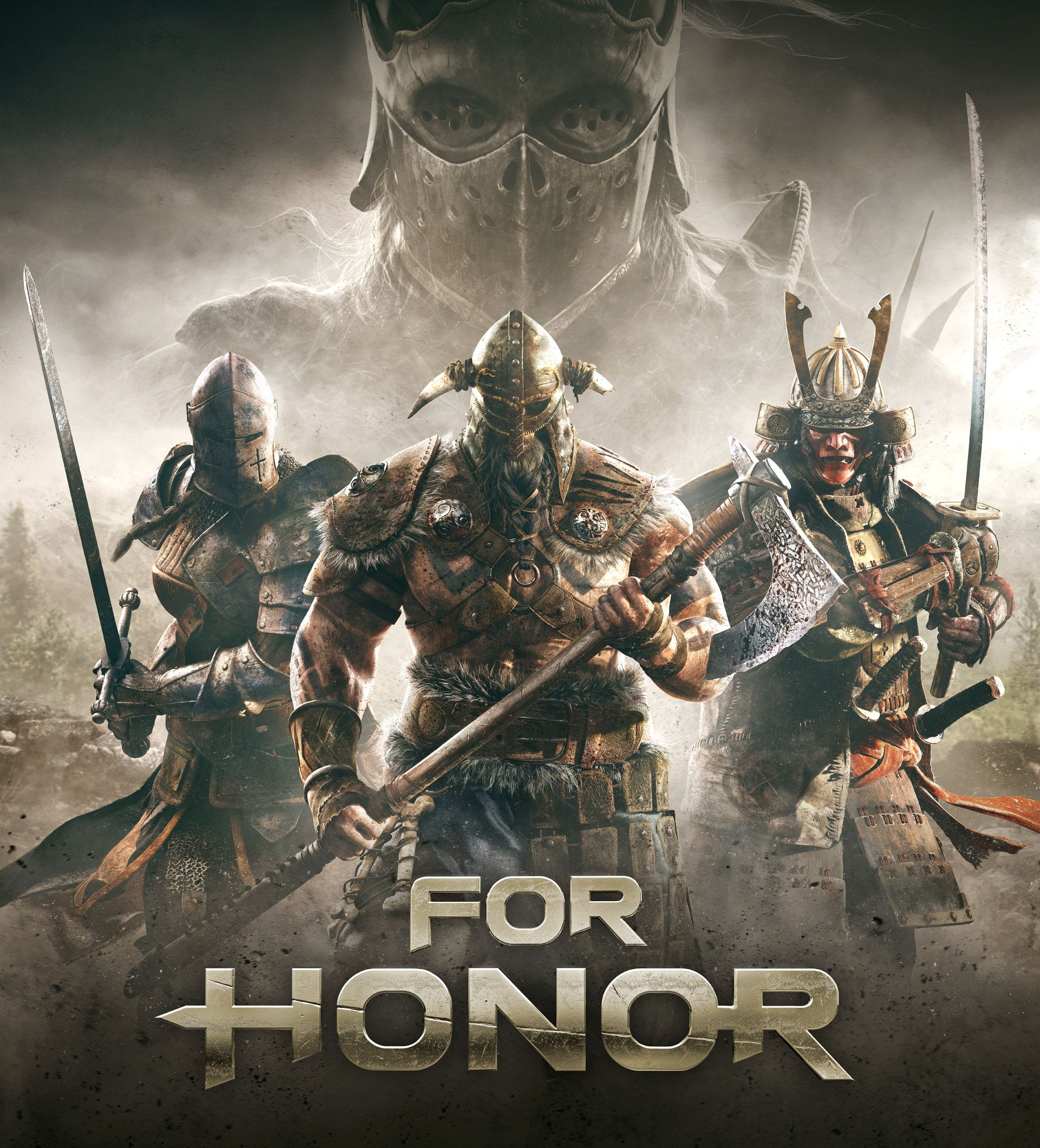For Honor successfully delivers on promise of offering casual and competitive players a hardcore fantasy action game that's unique to the genre and console generation.
Imagine a Samurai fighting a Viking or a heavily armored Knight. These iconic medieval factions come together in the fictional fantasy setting of Ubisoft's brand new game and franchise starter, For Honor. And it does with so a lot of cool ideas and visuals once players get over the relatively steep learning curve and tutorials.
For Honor, like many of Ubisoft's flagship franchises, has something for everyone. It features an enjoyable story campaign (that can be played co-op with two players) with memorable battles and heroes that helps introduce players to the many different types of characters, weapons, perks, abilities, and fighting styles, and pits them in the middle of all sorts of different skirmishes and combat scenarios.
And on the multiplayer front - the real focus of the experience - players can play any of the three factions across five multiplayer modes that range from large-scale team battles with legions of AI infantry on the battlefield, to more intimate and intense 1v1 and 2v2 modes. And on top of that, every match counts towards The Faction War - where points help each of the factions gain more ground on a world map.
Across the board there are detailed RPG elements which give players a deep variety of ways to progress and help keep multiplayer addictive. There are extra classes to unlock for each of the factions, abilities to unlock as each class is leveled up, and yes, you guessed it, weapons and armor bits which have direct effects on stats as well. It's a rather neat system, that when combined with For Honor's unique gameplay, makes one think Ubisoft thought of everything.
But they also thought of ways to tarnish the experience.
For Honor's Microtransactions and Matchmaking Ruin The Experience
Not unlike the Tom Clancy's Rainbow Six Siege, For Honor has so far had consistent issues with online matchmaking, from games crashing to not being able to find full matches at random. When it works, and if you're playing with friends, there's a lot of fun to be had but as an example, one evening we streamed a few hours and only one hour of it was actual gameplay. The rest of the time was trying to get it to work.
It's fair to expect better around launch and in time, much of this will be worked out, but then again, Rainbow Six Siege still has frequent errors and it's over a year old...
The other issue with For Honor is more of a philosophical one in that it seems, from its complicated interface system, that it's more of a store front than an actual retail game. After the tutorial, players are thrust right into a series of options that scream ‘pay for Twitch subscriptions’ and ‘give us money for in-game money and better stuff!’ right on the main menu and it really makes it not fun to play or invest time in, the same way microtransactions killed enthusiasm in Gears of War 4. Make no mistake, For Honor's store is that of a free-to-play game (get ready for loot boxes!) and while everything is "optional," For Honor holds back unless you pay above and beyond the full retail price. And yes, there are pay-to-win problems in that better stats can be purchased with more money spent although that does't effect all of the game's modes.
On one hand, For Honor is embracing the modern trend of publishers avoiding splintering the fan base by charging for maps, but on the other hand, paying more money gives players early access to the post-launch characters and will give them better, game-affecting items which all-around tarnishes the experience. Grind or pay knowing those who pay are better off than you.
For Honor Has Great Potential
We played For Honor on PC and consoles, and did have performance issues, character AI problems, and slow load times (even long load times for character models in the menu) on the console versions. If you can deal with that, the online issues, and aren't bothered by pay-pay-pay theme of the game, For Honor can be something special.
As something new and different, it’s easy to be turned off by the first minutes of For Honor if you aren't immediately grabbed by its mechanics but there’s a lot to love if you give it a chance. The game itself offers a multiplayer fighting experience you’ve never seen before. By throwing together three distinct factions (Knights, Samurai, and Vikings) that each have their own designs, aesthetics, character classes, weapons, animations, style, etc., it's rewarding picking a side and sticking with it.
Ubisoft deserves all the credit for crafting a new style of game and IP, and doing something outside of their open-world format many of their other brands embrace. For Honor can keep adding all sorts of new worlds, characters and weapons and continue to grow, especially if a community builds around its competitive multiplayer. It’s also easy to see how they can eventually add more campaigns on the story front.
And now that this engine, this world, and this type of gameplay is established, it’s easy to see how it can grow as well. For Honor is reminiscent of the fun Lord of the Rings style games on the previous console generations, something this game can easily support with a total conversion (that is, if Shadow of Mordor's sequel wasn't just announced!)
The game has options to let players turn off blood and realistic flesh effects (for the younger demographics if desired) and supports multiple difficulties. The more challenging options reward players with more experience points and the ‘realistic’ option disables all of the user interface options in combat, meaning it’s not telegraphed when and where attacks are coming from. On that difficulty, dying means you’re out.
For Honor represents a fun game concept with wonderful gameplay variety, unique mechanics, and a super cool setting that's marred by unnecessary complications and restrictions, with a heavy-handed and distracting progression/microtransaction system. If you’re excited for this game, there’s a lot to love. For everyone else, hold off until some updates polish up the online infrastructure and hopefully drop the painful always-online requirement for story mode.
[vn_gallery name="For Honor Art and Screenshots" id="906201"]

